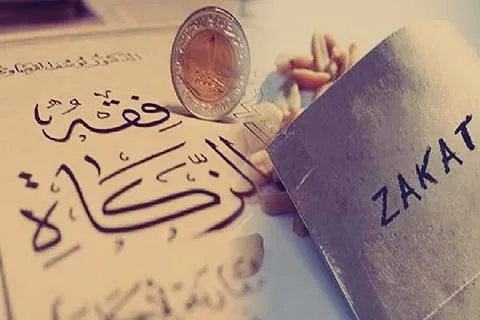We are directed to observe fasting to achieve piety and righteousness. During this month Muslims perform array of worship to please Allah and get pleasure of Allah.
In this month Muslims show sympathy and empathy towards fellow beings, and try to perform good deeds with generosity. They remember the destitute and disadvantaged, poor and needy of the society.
Zakat is vital from an economic point of view. Here well off people are asked to pay Zakat as a token of submission and an acknowledgement of gratitude to Allah for His blessings on wealthy people.
It reminds Muslims of the fact that whatever wealth they possess is due to the blessings of Allah and as such it is to be spent according to his commands. Zakat functions as a social security for all those who have enough money.
The amount of wealth which makes one liable for Zakat is called Nisaab. There are eight categories of deserving people who can receive Zakat, as the Quran has mentioned, like the poor, the destitute (needy), those unable to pay their debt or travellers who cannot afford to return home.
Zakat is the third pillar of Islam. However, there is a second type of charity called Sadaqa e Fitr which is paid only in the month of Ramadhan before Eid prayers. It has to be paid by all the members in a family, even for new born baby. All this goes to the poor, so that they can celebrate the occasion.
Zakat is an obligatory act of charity amounting to 2.5% of annual savings. Zakat is intended to purify our wealth, not only physically, but also spiritually. It purifies our hearts against selfishness as well as ensuring that the poor are protected against hunger and deprivation. Zakat plays a key role in supporting the poorest in the community.
Zakat is obligatory on an adult Muslim of sound mind, who possesses the minimum amount of wealth (known as Nisab) for one lunar year. Nisab must be maintained for one lunar year for Zakat to be required, and must be paid as soon as it is due. Your Zakat year therefore starts on the date your wealth first equaled or exceeded the Nisab and should be calculated on that date for each subsequent year.
Our Prophet Muhammed (SAW) has set Nisab at the rate equivalent to 87.5 grams of gold or 612.4 grams of silver. In the Hanafi school of jurisprudence, the value of silver is used to determine the Nisab eligibility to pay Zakat.
You need to pay Zakat on other types of wealth such as, cash held at home or in bank accounts, stocks and shares owned either directly or through investment funds, money lent to others, business stock in trade and merchandise, agricultural produce, livestock animals such as cows, goats and sheep, pensions, property owned for investment purposes.
A commonly asked question is whether women need to pay Zakat on their gold and silver jewellery. If women are only using that jewellery for personal ornamentation with certain given limits, and it is not used as an asset, then they don’t have to pay Zakat on it.
If they are buying jewellery for the purpose of accumulating wealth or selling it later, or if they have an extravagant amount, then that jewellery is no longer mere ornamentation, and they need to pay Zakat on it. Allah has enjoined upon Muslims to be steadfast in prayer, and practice regular charity.
The God fearing people always take advantage of these blessed days and pay Zakat in this month. It is good to institutionalise the Zakat system in the society so that we are able to check many social evils.
Disclaimer: The views and opinions expressed in this article are the personal opinions of the author.
The facts, analysis, assumptions and perspective appearing in the article do not reflect the views of GK.






